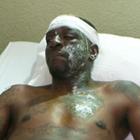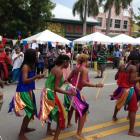ADVERTISEMENT
independence
General Francois Capois, Capoix-la-Mort
History reported that Haitian General Francois Capois, Capoix-la-Mort mounted on his great horse, led his brigade despite storms of bullets from Vertieres forts. During the process, his horse was hit by a cannon and fell. General Francois Capois, Capoix-la-Mort took his sword and ran again to the head of his soldiers shouting always "Forward! Forward".
The Battle of Vertiere, near Cap-Haitian
Here is a picture of the Historic site that help in the independence of Haiti.
The Battle of Vertiere, near Cap-Haitian was the last battle of the Expedition Santo Domingo.
It involves troop commanded by General Rochambeau against General Jean-Jacques Dessalines troups
The date is November 18, 1803 when General Jean-Jacques Dessalines ordered François Capois (Capois lamort) Brigade to take Fort Vertières. Capois-La-Mort asked his force to follow him, shouting: "Forward! Forward".
Scene from The Battle of Vertieres
Here is a picture of a scene from The Battle of Vertieres that actually gave Haiti its independence. The Battle of Vertières was the last major battle of the Haitian War for Independence. This constituted the final part of the Haitian Revolution. This Battle of Vertieres near Cap-Haitian is considered to be the decisive battle
Jean-Jacques Dessalines born in Grande-Rivière-du-Nord
Jean-Jacques Dessalines, the Father of Haitian independence was born in Grande-Rivière-du-Nord
Grande-Rivière-du-Nord is the place where Haiti's slave rebellion began, and it was the site of Grade Rivière du Nord Battle.
During U.S. Occupation between 1915-1934, a rebellion was led by resistance fighter Charlemagne Peralte.
The town contains many attributes. It possesses virgin forestland, produces clean mountain-spring drinking water, and participates in agricultural production.
But its infrastructure is not completely developed with bad roads, and absence of an airport. Projects for the town's urbanization are currently in the works.
Gonaïves City of Historical Importance
Gonaïves, a district located in the Haiti department of Artibonite, is comprised of three communes.
The city contains the Gulf of Gonave harbor, where it exports coffee, cotton, sugar, fruits, and wood products.
It is renowned as Haiti's Independence City, where the Act of Independence was read at its Place d' Armes in 1804.
In 2010 it served as refuge for survivors of the earthquake, depleting its scarce resources. Today it has become a peaceful community.
Battle at ravine a Couleuvre deters French Invasion of Gonaïves
In 1802 Haitian General Louverture fought a battle against French General de Rochambeau's troops. They were encamped at Ravine-a-Couleuvres, preparing to invade Gonaïves.
Louverture encountered Rochambeau's troops while passing through the area on his way to aid General Vernet in defending Gonaïves. This event, named the Battle of Snake Gully, was a murderous battle, preventing Rochambeau from invading and capturing Gonaïves. It also gave General Vernet enough time to torch Gonaïves and escape with his troops, preventing French occupation.
Haitian Revolution
In 1789, the entire Europe was sucked into was because of the French Revolution. This French Revolution also tickled the slave uprising in Caribbean. Over next 5 years France eventually abolished slavery in all its colonies by building on 'Declaration of the Rights of Man'. However, in 1802, Napoleon Bonaparte tried to bring back slavery in West Indies by means of military force and political guile and captured and exiled Toussaint, the commander-in-chief of Island by French Convention and Governor for life of St. Domingue. The fight however continued and in 1804, Dessalines became the ruler of a new nation called Haiti, which means 'Higher Place'.
James Theodore Holly sees Haiti as opportunity for blacks to establish Black nation
A descendent of free slaves in the United States, Reverend James Theodore Holly was baptized and confirmed as Roman Catholic, but left and joined the Episcopal Church in 1851.
He sees the newly independent Caribbean Island of Haiti as an opportunity for blacks to bind together and establish a Black nation in the Western world.
During various governments, he traveled to Haiti in order to negotiate an emigration treaty with the country. Holly later requested from the Board of Missions of the Episcopal Church to be sent to Haiti to serve as a missionary, but was denied. After serving as consul for Liberia at Port-au-Prince from 1864 to1874, Holly was consecrated missionary bishop to Haiti. He continued to live and work in his adopted nation of Haiti, returning rarely to the United States, until his death in 1911
The Battle of Vertieres in the Haitian Revolution
The Battle of Vertières, the last major battle before Haitian Independence. Fought between Haitian rebels and French expeditionary forces on 18 November 1803 at Vertières situated Nord of Haiti. Haitian rebels had already taken over all the territory from France. The only places left to France were Mole St. Nicolas, held by Noailles, and Cap-Français, by Rochambeau
New Year Independence Day - Soup Joumou or Pumpkin Soup
This is a presentation of a typical independence Day in Haiti where we all Haitians will drink the Independence Soup Joumou.
This is a uniquely Haitian tradition dated back to our history during the French colonization of Saint Domingue.
Many brave and zealous Haitians died by fighting for the independence of Haiti hoping that one day they would be free.
When the French were in control, they were the only people who could eat soup because they were in the upper class. Blacks weren't allowed.

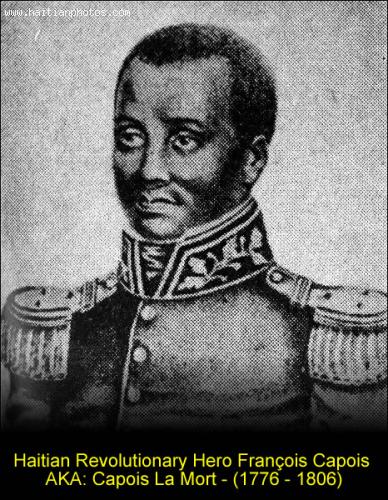
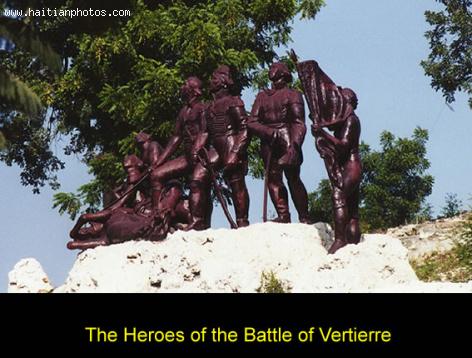
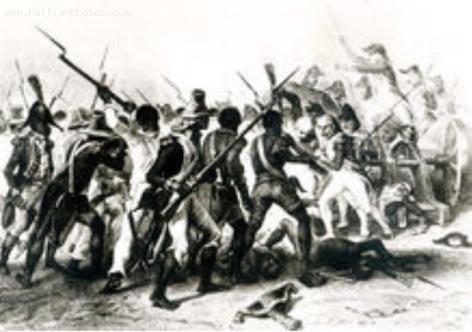
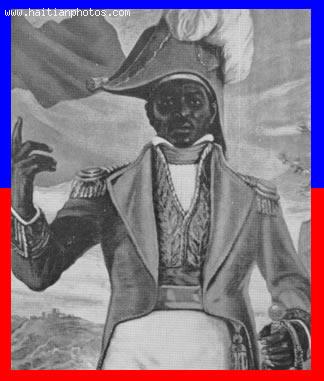

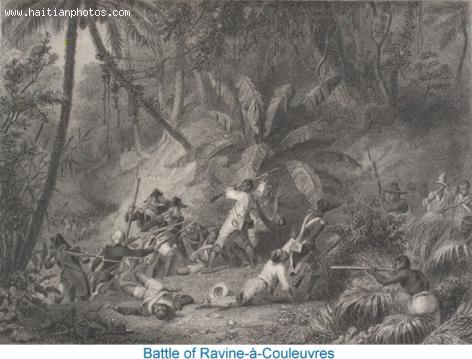
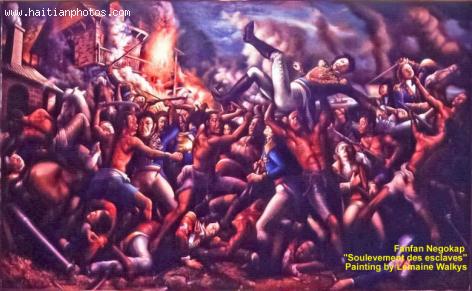
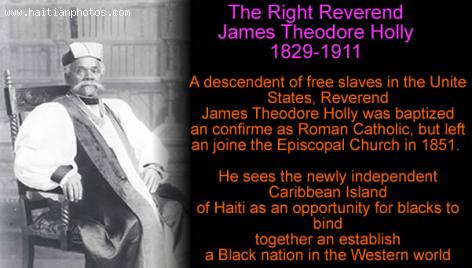
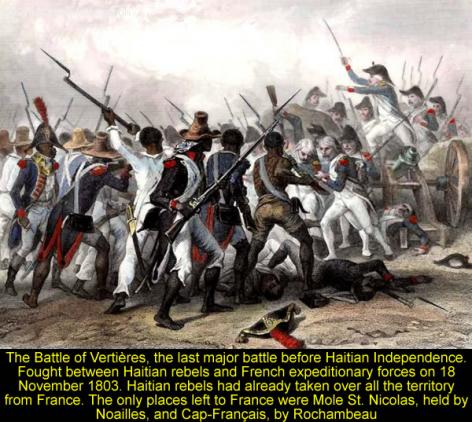

 Bouki Ak Ti Malice, Story Of Intelligence Vs Ignorance For...
Bouki Ak Ti Malice, Story Of Intelligence Vs Ignorance For... 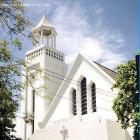 Nouveau College Bird in Port-au-Prince, Haiti
Nouveau College Bird in Port-au-Prince, Haiti 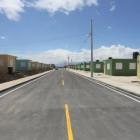 View of road in Lumane Casimir Village
View of road in Lumane Casimir Village  Jean Henry Céant deposited documents in Parliament for...
Jean Henry Céant deposited documents in Parliament for...  Philippe Vorbe entered world football Hall of Fame, CONCACAF
Philippe Vorbe entered world football Hall of Fame, CONCACAF  Pope Francis appointed Mgr. Launay Saturne Archbishop of...
Pope Francis appointed Mgr. Launay Saturne Archbishop of...  Meet Haitian-American professional baseball pitcher Touki...
Meet Haitian-American professional baseball pitcher Touki... 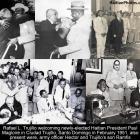 Rafael L. Trujillo welcoming Paul Magloire in Santo Domingo
Rafael L. Trujillo welcoming Paul Magloire in Santo Domingo 